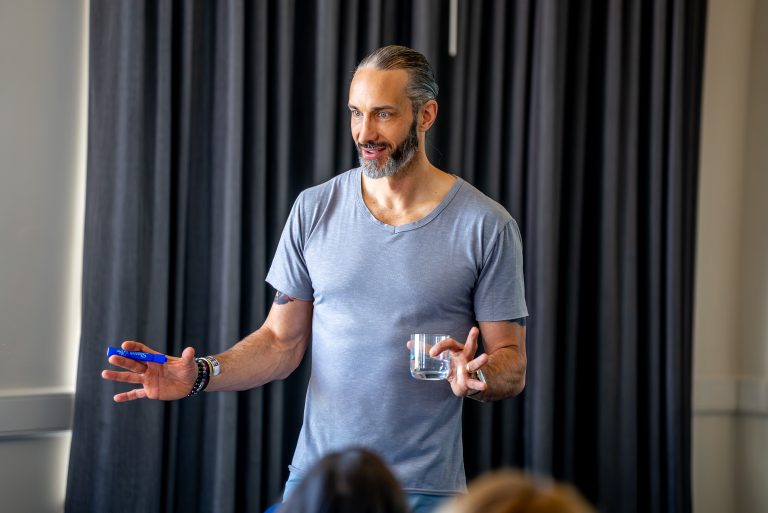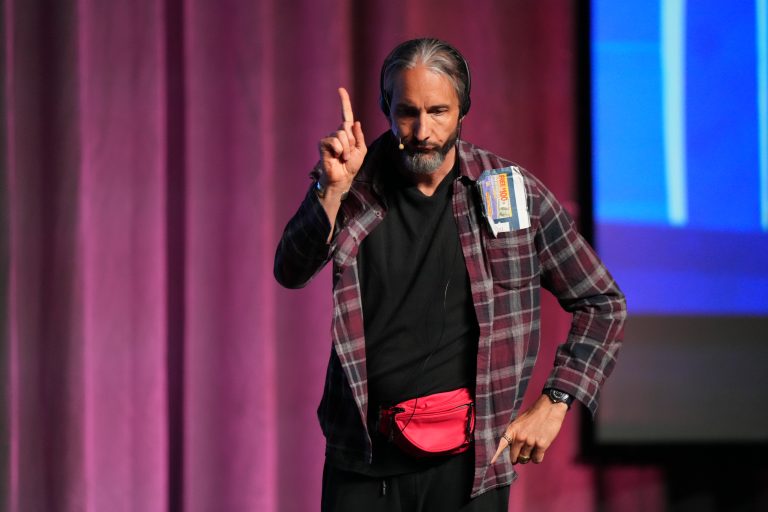We often view the word “expense” as a dirty word.
Something negative.
Something to control or avoid.
But how do we enjoy money if not for expenses?
An expense is how we utilize our money. But expenses are often viewed as wasteful or the reason we can’t or won’t become wealthy.
Can we shrink our way to wealth?
Do we want to?
Could the reductionist mindset be the actual trap that prevents wealth? Sure, maybe you can scrimp your way to millions, but how fun is that?
Having millions but living like a pauper isn’t what I would call wealth.
Let’s consider expenses from a different angle: Your expense is someone else’s income. And vice versa.
Do you want people to pay you the least amount possible?
To negotiate the lowest possible amount to be paid?
How would that feel? Is that what you want for your income?
Is it smart to vote with our dollars for the lowest-quality, cheapest goods and services?
In the scarcity mindset, taught to devalue people—including ourselves—to get the best deal. To put more money in our accounts (from which Wall Street and banks profit). To delay the things we want to do until retirement. To spend time looking for the cheapest transactions without considering the time it takes.
What amount of energy is spent trying to get the very best possible deal?
What else could be done with that time?
What is the cost of cutting back?
What does it do to exchange and to quality?
Cheapskates rarely value their time.
Many financial gurus have reinforced this mindset and made their career telling people to limit and even eliminate expenses.
Yes, the path to the miserable millionaire. How exciting.
The broke millionaire has plenty of money but is devoid of quality of life. Rich on paper, poor in experience.
The way we go about building wealth, and our viewpoints and habits, are keys to living our richest life.
If you are cheap enough, you can accumulate millions, but won’t enjoy the fruits of your labor.
Maybe instead of cutting back, focus on creating more value for others.
Creating more cash flow over cutting back expenses is an empowering mantra.
The philosophy that expenses are to be avoided, reduced, or eliminated is a trap. It is a mindset that leads to reduction over production and sacrificing over being satisfied.
Exchange facilitates wealth. If we reduce exchange, we reduce wealth. We limit ourselves and we put a cap on our production and energy.
If we don’t have expenses, how do we utilize and enjoy money?
And if you spend substantial time reducing expenses, it begs the question: What is your time worth?
If you try to do everything yourself to save money, you spend energy. Where could you delegate to free up your best abilities and most enjoyable life? Where can you use your energy to create more value?
There are expenses worth researching and being mindful about what you spend, and others that are inconsequential in the savings compared to the time required.
I’ve experimented with this before. In my 20s, I spent a day looking at everything I could reduce in my personal life. I was able to save around $170 a month. Most of the savings were giving up things I actually enjoyed and used, but were optional.
The next week, I spent a day brainstorming ways I could add more value. I came up with a program for financial advisors charging $170 a month. One client would replace the savings. There would still be tax and some expense to provide that value, so two may be a bit more accurate.
Years later, I hired someone to do this in my business with me. We were able to find thousands and thousands of dollars per month—well worth the time. We dropped programs with low margins, utilized different software, and found new providers for our phone and Internet, all of which saved us a ton of money. I took that money and hired a COO. Time well invested.
Prosperity is not a game of elimination—it is a game of creation. It is a game of expansion.
Eliminate or reduce expenses that can be reinvested in ways to grow.
Be more effective and efficient.
Consider if the expense is worth it.
Consider quality of life as a valid expense to improve and manage your energy.
Context matters.
Being intelligent with expenses is key, but being obsessed with cutting back can be costly.
Intelligence means understanding and avoiding destructive and irresponsible spending. Consumerism and materialism do not lead to long-term happiness or wealth.
It is critical to understand not all expenses are created equal.
Some expenses are destructive.
Funding addictions.
Wasting money on something that is never used or utilized.
Using credit cards that you won’t be able to pay off.
Creating an artificial life to impress people with money you don’t have.
Other expenses are simply because you buy something you enjoy—with money you have. I call this value-based spending. Creating your richest life through experiences and indulgences that matter to you. Is it worth it to you? Do you have the money for it now?
Get rid of any destructive expenses, but consider increasing productive expenses.
What do you value most?
What do you want if money is not a limiting factor?
Where is quality of life considered and when is it considered if budgeting is your main strategy?
Sometimes people are afraid to spend/invest money when they are caught up in accumulating dollars in their plans and accounts.
Investing in yourself could take time and not be as immediately measurable as a money market deposit or funding a retirement plan. It may not be as immediately rewarding as buying something from the mall but has more possibility to matter down the road.
You may develop a critical and valuable skill but requires months or years before it increases your income.
Skills take time to develop. Building relationships can take time to develop.
Attending masterminds, hiring mentors, and building a team can be seen as an investment or expense. It shows up as an expense on your income statement. But if you remove those expenses, will it limit your value? Could it cost you more and reduce your production? Can it lead to more expensive mistakes?
Scarcity tends to have people focus more on reduction than production. We have been indoctrinated to put money into plans we don’t understand, wait for thirty years, and then finally start to enjoy life. These plans aren’t seen as an expense but called an investment.
If you don’t know how you will benefit from the plan, don’t know how to reduce risks, or don’t know the fees and costs, or have no exit strategy or tax planning…these are all opportunity costs and expenses.
What else could you have done with the money?
Risk is an expense.
Fees are an expense.
Taxes are an expense.
Plan administration is an expense.
Volatility is an expense.
Not utilizing the money is the ultimate expense.
Money that goes into a plan with no assessment of how to benefit from the plan is a destructive expense. It may provide a sense of security or a feeling of accomplishment along the way—and that has value, but it is unrealized potential.
What good is money that is never utilized or enjoyed? Do we really want money or what it can provide for us?
Money is a store of value.
When we add more value than we consume, we end up with money.
That money can provide a feeling of safety.
Money can give you more staying power. Better options.
And to some degree, freedom.
But money alone cannot create freedom. Freedom is in our mind, in our perspective, and our human life value (our ability to create value). When we have choice, and money is no longer the primary reason why we do or don’t do something, we are free.
Money alone is not power.
Money’s power is unlocked with mental and relationship capital.
Vision gives money meaning and direction.
Invest in yourself.
Develop your vision.
Unlock your abilities and become the value creator you were born to be.
Ready to Stop Guessing With Your Money?
Most financial advice tells you to save more and spend less. That’s a losing game. Garrett’s free book Killing Sacred Cows reveals why the conventional wisdom is costing you—and what to do instead.
Frequently Asked Questions
Are expenses good or bad?
Expenses aren’t inherently good or bad — they’re how you utilize money. The question is whether they create value, enjoyment, or opportunity. Productive expenses build wealth; wasteful expenses drain it. Context matters more than category.
Can you shrink your way to wealth?
No. You can’t shrink your way to wealth. Scrimping to millions while living like a pauper isn’t wealth — it’s deprivation with a bank balance. Wealth is about living well while building value, not sacrificing today for a someday that may never feel satisfying.
How do I know if an expense is productive or wasteful?
Ask: Does this create value, save time, improve health, or generate joy? Productive expenses return more than they cost — in money, energy, or quality of life. Wasteful expenses are unconscious, reactive, or status-driven without real benefit.
Why do people view expenses as wasteful?
Because they’ve been taught the reductionist mindset — that cutting expenses is the path to wealth. But this trap prevents enjoyment and often prevents wealth itself. You build wealth by creating value and optimizing, not by denying yourself into misery.



